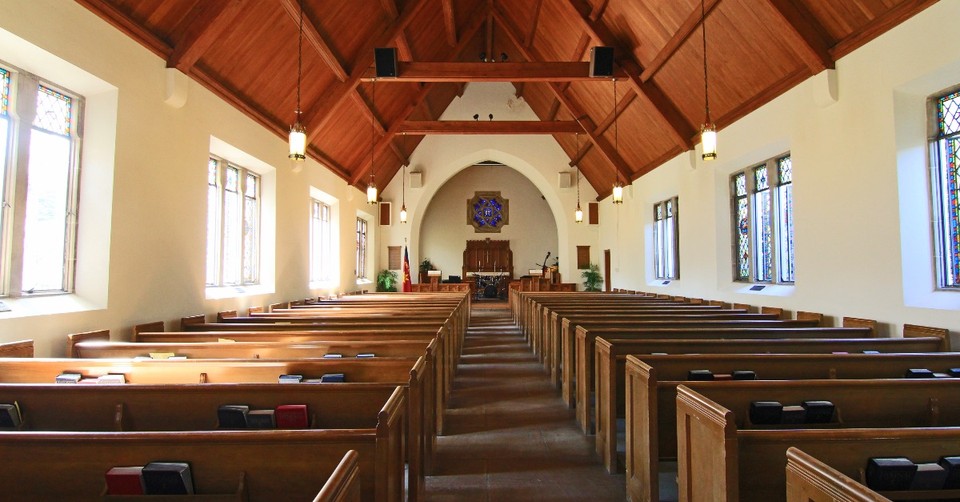How to Make Your Church a Safe Place for Sinners

In recent years, there has been an explosion of websites which allow people to anonymously confess their deepest, darkest secrets. The website “Post Secret” allows people to send in anonymous post cards with dark secrets written on them, which are then posted publicly on the website. Recently, a slew of “confessional” apps have been released, all with the same purpose in mind: allowing people to get stuff off their chest. The app “Whisper” lets folks anonymously unburden themselves and then receive the support of the Whisper community. Some of these secrets are humorous. Most of them are sad and even disturbing.
Why are these websites and apps so popular? Because every person is overwhelmed by living in a fallen world. Everyone is crushed by the sinful baggage they’re carrying around.
A guy is struggling with his sexual orientation but doesn’t want to tell anyone, so he shares it anonymously. A woman is being destroyed by bulimia but can’t bear the thought of letting the secret out into the open, so she puts it up on Whisper in hope of some support. A guy doesn’t know how to handle his recent breakup, so he goes looking for help online. Everyone is living in quiet desperation. Desperate for hope. Desperate for encouragement. Desperate for light in a dark world.
If there is one place where it should be safe to tell secrets, it should be the church. Apps like Whisper can offer only the slightest, fleeting consolation. We can offer Christ, the one who forgives our darkest sins and gives us power to overcome them. Anonymous apps can only offer anonymous comfort. We can offer real shoulders to cry upon, a real community to receive support from, and real help in desperate times. Post Secret offers the temporary Novocain of anonymous confession. We can offer the forgiveness of God, which comes through true confession.
Of course, this raises the question: Are our churches safe places for confession?
Would a homosexual or bulimic or cutter or high-functioning pain-killer addict feel comfortable talking about their battles in our churches? I suspect that in many cases, the answer is “no.” This shouldn’t be the case.
The church is not a fitness center where people come to improve themselves. It’s a hospital where deathly ill people meet with the Great Physician. The church isn’t an advanced placement class for all the smart kids. It’s “Remedial Life” for those who don’t have it together. The church is where battered, beaten, broken-down, helpless sinners come to receive grace and strength. I love how Steve Brown puts it:
I’m just a beggar telling other beggars where to find bread.
So how do we make our churches safe? Two simple suggestions.
1) Pastors, talk about specific sins from the pulpit.
One of the primary tasks of pastoral ministry is helping people see how the gospel connects to and is the answer to particular struggles and sins. When you prepare your sermon, do the work of connecting the dots between the gospel and a variety of sins. And when I say “variety,” I really do mean a large variety. Don’t limit yourself to the normal sins of anger, impatience, or fear. Also connect the gospel to sexual desires, eating disorders, drug addiction, cutting, embezzlement, and the many other sins Jesus died for on the cross. There are people in your congregation who struggle with these things, and if you don’t help them see the hope of the gospel, they’ll be overwhelmed with discouragement.
2) Church members, talk about your specific sins in your small groups.
Obviously this needs to be done with kid gloves, discernment, and a big dose of wisdom. There are some things that are only appropriate to share with a close friend. You get my point.
But when possible, open up about your own struggles. Let people see that you’re a messed up person who desperately needs Jesus. Let people see that even though you’re a jacked-up sinner, you don’t despair because you have Jesus. When the opportunity presents itself, open up about how Jesus has helped you in the midst of your struggles and messiness. In doing so, you’ll give hope to those who are burdened by their secrets.
When Jesus informed the woman at the well that she was a serial adulterer, she didn’t shut him down or run away from him. Instead, she brought the entire town to meet him. Why? Because Jesus offered her eternal life. He offered himself to her as the solution for her inability to keep a marriage together. He gave her hope where she had no hope.
Let’s offer people the same hope, week after week. Let’s turn our churches into restful havens for weary, broken-down sinners.
Photo credit: Debby Hudson/Unsplash
Stephen Altrogge is a writer, pastor, and knows a lot about Star Wars. Find out more at The Blazing Center.
Originally published March 13, 2015.







